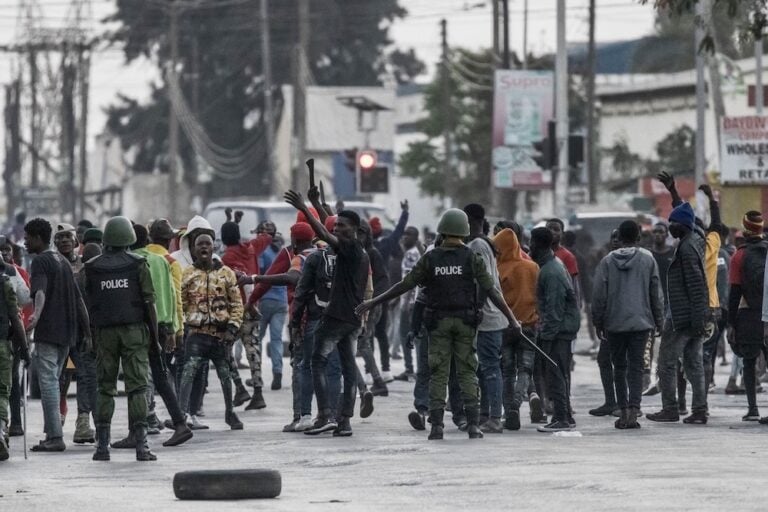(MISA/IFEX) – On 30 August 2000, Angela Chishimba, a correspondent for the “Zambia Daily Mail” newspaper, was beaten and had her press identity card confiscated by riot police who were sent to quell a violent student demonstration at a University of Zambia campus in Lusaka. Chishimba told the Zambia Independent Media Association (ZIMA/MISA-Zambia) that she […]
(MISA/IFEX) – On 30 August 2000, Angela Chishimba, a correspondent for the “Zambia Daily Mail” newspaper, was beaten and had her press identity card confiscated by riot police who were sent to quell a violent student demonstration at a University of Zambia campus in Lusaka.
Chishimba told the Zambia Independent Media Association (ZIMA/MISA-Zambia) that she had gone to the university’s Great East Road Campus to report on the disturbances which had rocked the university earlier in the week. She was headed for a student’s hostel to seek an interview with student leaders when she was confronted by riot police outside the hostel.
When asked to identify herself, she produced her identity card and handed it to one of the police officers who glanced at it and reportedly said: “There is nothing like press cards here.” He then allegedly put it in his pocket. When she asked why her card had been confiscated, more police officers approached and allegedly started beating her. She was then ordered to join a group who had been detained outside the hostels.
Chishimba told ZIMA that her ordeal lasted about an hour and only ended when she was released on orders from a man believed to be from the Zambian intelligence service, who was counting the number of detained students. He apparently believed her explanation that she was a reporter. However, her identity card was not returned.
Police spokesperson Lemmy Kajoba confirmed receiving a complaint from Chishimba that her press card had been confiscated. He said: “Police are investigating the circumstances.” He noted however that journalists from other media organisations who were covering the same incidents went about their work normally because they reportedly had police protection.


